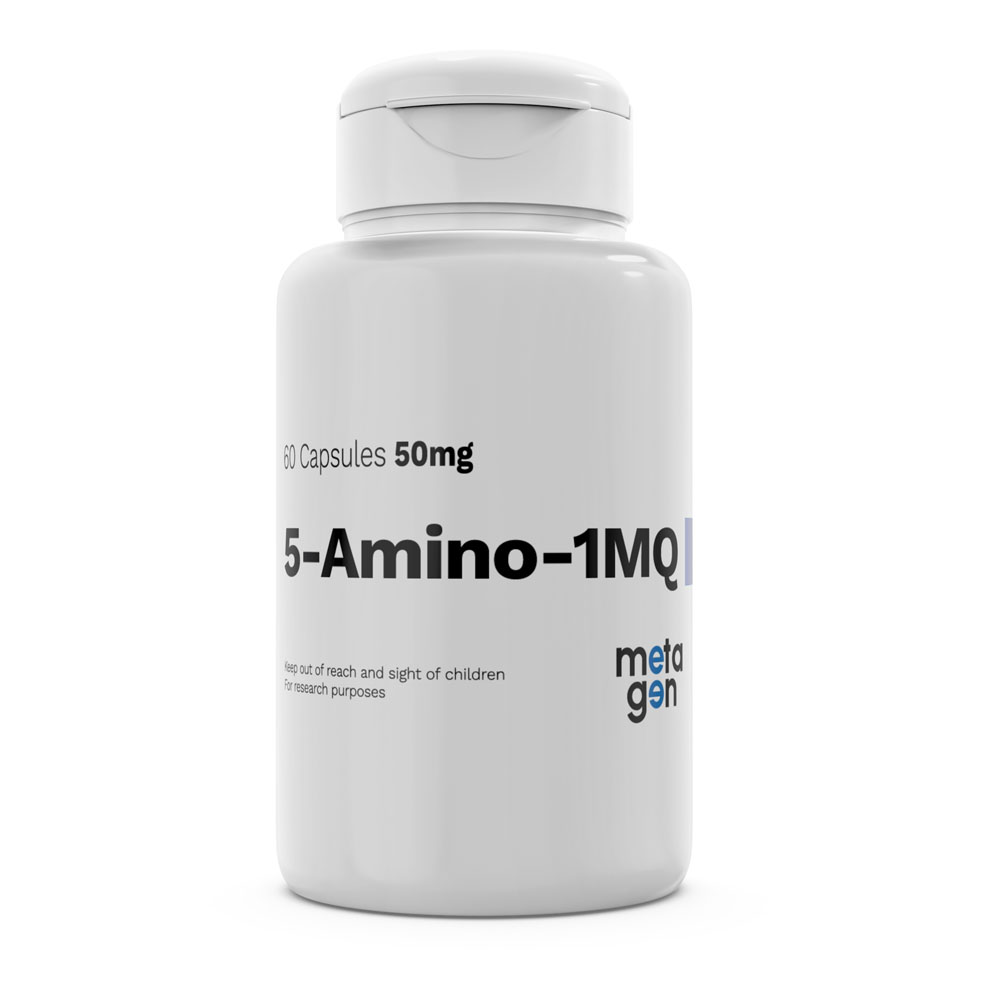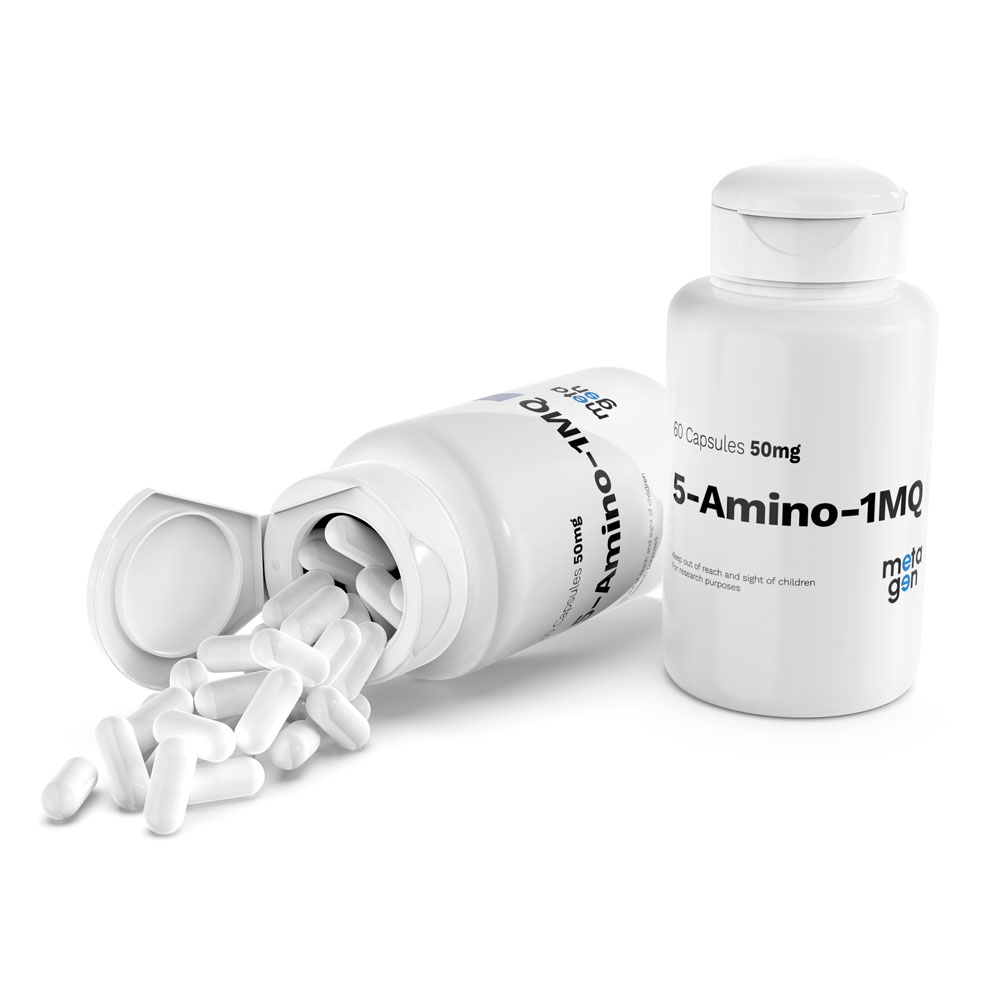5‑Amino‑1MQ: Metabolic Accelerator & NAD⁺ Booster
Enhance Fat Loss, Boost Energy, and Support Longevity
5‑Amino‑1‑methylquinolinium (5‑Amino‑1MQ) shows promise in research trials as a potent small-molecule inhibitor of the enzyme nicotinamide N‑methyltransferase (NNMT), a key regulator of cellular energy metabolism, fat storage, and aging. By blocking NNMT, it prevents the methylation of nicotinamide, freeing it for conversion into NAD+, a vital coenzyme in mitochondrial function, sirtuin activation, and DNA repair.
This unique mechanism potentially supports higher energy expenditure, improved insulin sensitivity, and healthier body composition, without affecting appetite or hormonal balance.
5‑Amino‑1MQ purportedly operates by:
- Inhibiting NNMT – Prevents methylation of nicotinamide, enabling it to convert into NAD⁺ instead of being inactivated.
- Elevating NAD⁺ Production – Higher NAD⁺ fuels mitochondrial electron transport, energy production, and sirtuin activation.
- Suppressing Lipogenesis & Reducing Fat Storage – Reduces the activity of fat-synthesizing pathways, shrinking adipocytes without affecting appetite.
- Enhancing Insulin Utilization – Improved NAD+ and metabolic health promote better glucose uptake and blood sugar control.
- Activating SIRT1 & Longevity Pathways – NAD⁺-dependent enzymes involved in longevity, DNA repair, and stress response become more active.
- Nourishing Gut & Metabolic Health – Early evidence indicates microbiome improvement tied to metabolic gain.
Preclinical studies have shown that 5‑Amino‑1MQ reverses diet-induced obesity, reduces fat mass, preserves lean tissue, and enhances metabolic resilience. Because it works at the cellular level, it holds promise not only for weight loss but also for longevity and metabolic disease prevention, positioning it as a frontier compound in wellness and anti-aging protocols.
All current evidence for 5‑Amino‑1MQ is from preclinical cell and animal studies; no human clinical trials have been published yet. Use in humans remains investigational, and safety/efficacy in people is not established.
Key Potential Benefits
- Therapeutic Fat Loss – In diet-induced obese mice, dramatically reduces body weight, fat mass, and adipocyte size without altering food intake.
- Boosts NAD+ & Energy – Increases nicotinamide availability and NAD⁺ levels, supporting mitochondrial efficiency and metabolic rate ,
- Improves Insulin Sensitivity – Enhances glucose tolerance and insulin response in preclinical models of metabolic syndrome.
- Activates Sirtuin-Driven Anti-Aging Pathways – Elevated NAD⁺ triggers SIRT1 activity, aiding cellular repair, stress response, and healthy aging.
- Preserves Lean Muscle & Supports Athletic Recovery – Emerging data suggest it protects muscle mass and improves metabolic recovery in aged or detrained subjects
- Supports Metabolic Microbiome Health – May foster beneficial gut microbiota changes when used with a healthy diet.
Research Sources
- Selective and membrane‑permeable small molecule inhibitors of NNMT
- Roles of Nicotinamide N‑Methyltransferase in Obesity and Type 2 Diabetes
- Nicotinamide N‑methyltransferase inhibition mimics and boosts exercise‑mediated improvements in muscle function in aged mice
- Reduced calorie diet combined with NNMT inhibition establishes a healthier gut microbiome in obese mice
Technical Information
CAS Number: | 42464-96-0 |
PubChem CID: | 950107 |
Formula: | C10H11N2+ |
Synonyms: | 5-amino-1-methylquinolinium, SCHEMBL6403148, SCHEMBL9331979, CHEMBL4116828, ZMJBCEIHNOWCMC-UHFFFAOYSA-O |


